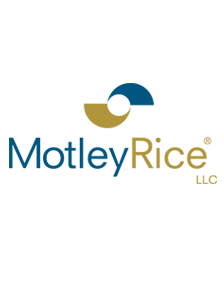
Investors: Get ready for an ad bonanza | Causes, Not Just Cases®
by: Motley Rice
Just in case you do not already receive enough credit card offerings (addressed to you or your dog), mortgage refinance solicitations (in official looking envelopes) or random automated sales calls to your cell phone (how did they get that number anyway?)—here comes another financial “opportunity.” On Monday, Sept. 23, 2013, an 80-year ban on general solicitation will be lifted, allowing companies to advertise private securities offerings to investors of all kinds without having to register the offering with the SEC or any state so long as certain requirements are met.
The new rule was created under the Jumpstart Our Business Startups Act (JOBS Act) and is intended to allow businesses such as venture capitalists, hedge funds and other private companies to openly advertise that they are conducting private placement offerings—all with the goal of making it easier for companies to raise capital and create more jobs.
Historically, solicitations for offerings of this type, made pursuant to Rule 506 of Regulation D of the Securities Act of 1933 (the Securities Act) and Rule 144A under the Securities Act, were limited to “accredited investors.” To be “accredited” an investor must be: a natural person at the time of purchase with a net worth in excess of $1 million (excluding the value of the purchaser’s primary residence) or have an annual income in excess of $200,000 for each of the last two years and a reasonable expectation of having at least that income for the current year (or $300,000 when coupled with the purchaser’s spouse for those same time periods).
When the new rule becomes effective, companies that wish to generally solicit investors will no longer have to ensure that their audience is made up of only accredited investors. The catch, however, is that while private funds can generally advertise and solicit, they must ensure that no sales are actually made to non-accredited investors. Even though non-accredited investors may now hear of more risky/rewarding investment opportunities, they still will not be allowed to take advantage of them.
Essentially, the timing of the screening process has changed. In the past, investors had to be screened before they received advertising, to which companies relied on entities like brokers, dealers and other financial intermediaries to ensure they were soliciting to the right people. Now advertising may be of a much more general nature, and the screening will effectively take place closer to or after the potential investor has expressed an interest in the offering.
For accredited investors, the new rule may result in receiving more solicitations for investment products. As for non-accredited investors, they may begin seeing advertisements for certain types of offerings that they had not previously been exposed to, and of course are not legally allowed to purchase.
Although the intent of the new rule is well-taken, critics take issue with the potential abuses or outright fraud that could occur with the quirkiness of the general solicitation rule. Disastrous results could ensue for issuers that become relaxed on their due diligence or for non-accredited investors that blindly attempt to purchase unsuitable products.
To the credit of regulators, some rules are already in place to help stem certain misconduct that might occur. For example, if an issuer chooses to generally advertise or solicit, it must still put policies and procedures in place to ensure that “reasonable” steps are taken to verify that each purchaser is accredited and that no sales are made to non-accredited investors. Further, the SEC has listed nonexclusive steps by an issuer that may be deemed reasonable for verifying the investor’s status for compliance with the Rule:
- Documentation of income, such as through a review of the last two years' income tax returns;
- Documentation of net worth, such as through a review of bank and brokerage statements for assets and a credit report for liabilities;
- Third-party verification of accredited status from a broker-dealer, certified public accountant or attorney; and
- Reliance on written verification from an existing investor who previously purchased securities in the issuer's Rule 506 private placement before the effectiveness of the new rules, where the investor continues to hold the previously purchased securities.
While issuers must do their own verifying to determine whether potential purchasers qualify, investors should equally conduct their own due diligence. Among other things, an investor might:
- Seek advice from trusted and competent professionals
- Understand precisely what he or she is investing in
- Verify that the investment and issuers are legitimate
- Independently ensure that he or she qualifies for the investment
And above all, remember those wise words your grandmother said, if it sounds too good to be true, it probably is.
Authored by David Abel, a Motley Rice attorney from 2010 to 2016.